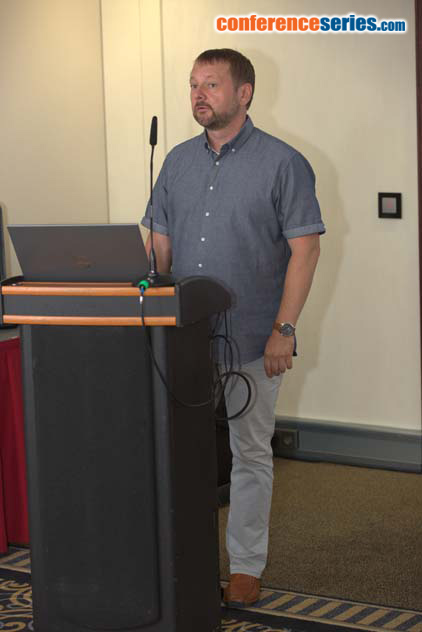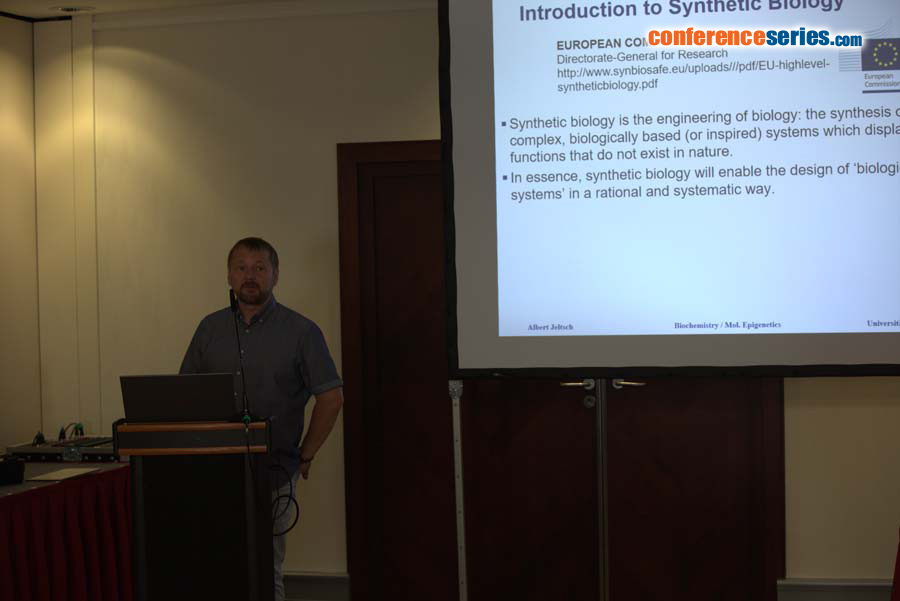
Albert Jeltsch
University Stuttgart, Germany
Title: Design of synthetic epigenetic circuits exhibiting positive feedback, memory effects and reversible switching
Biography
Biography: Albert Jeltsch
Abstract
We report here the design and experimental validation of synthetic epigenetic memory systems which store information in form of DNA methylation patterns in live bacteria. Key components are a DNA methylation sensitive engineered zinc finger protein controlling a memory operon comprising the CcrM methyltransferase gene and a reporter gene. In the off-state, the memory operon is repressed by the zinc finger protein. It can be triggered by heat, nutrients, UV irradiation or DNA damaging compounds which induce DNA methylation by CcrM. In the induced on-state, methylation marks set in the operator region of the memory operon permanently activate the memory system even after cessation of the trigger signal (positive feedback). Inclusion of a protein degradation tag allowed to establish a reversible switching system. Epigenetic memory switches represent a novel application in synthetic biology with numerous potential applications, for example to set up life biosensors for long term observation of environmental sites for pollution, to ensure cooling chains, as a death switch in containment systems for GMOs, or as cost efficient induction switch in industrial protein production. The large variety of DNA-(adenine-N6)-MTases potentially allows for massive multiplexing of signal storage and potential logical operations depending on more than one input signal.






